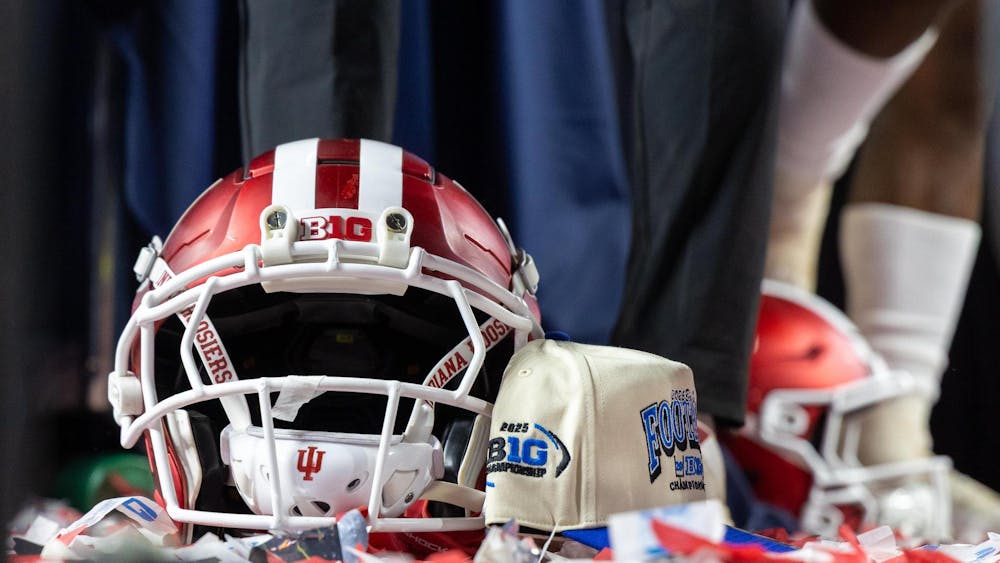As a freshman, Chris Essick competed in 33 singles matches. This year, as a sophomore, Essick has played in seven.
IU Coach Randy Bloemendaal said he believes it takes 18 months to fully adjust to college tennis. In September of this season, Essick was at the 12-month point in this process — when a player begins to really improve, according to Bloemendaal’s model.
During the first tournament of the fall 2013 season, the Navy National All-Conference Invitational, Essick went 0-3 in singles and 1-2 in doubles.
He said he felt exhausted the entire tournament, and decided to go to the doctor.
Essick had contracted mononucleosis.
“I was pretty upset,” Essick said. “I had started playing really well. It was after the Navy tournament I found out, and I wasn’t able to go to the Big Ten Championships with the team, so I was pretty bummed about that. Then I was out for four or five weeks, I think.”
During these weeks, Essick was unable to practice or go to class. Bloemendaal said this gave Essick time to assess the situation he was in.
“I think any time you’re hit with adversity, you start to look inward,” Bloemendaal said. “I think he’s a really good person, and he’s turned into a strong man. It was kind of fun to watch him go through that part of it and analyze where he was at in life and see what he wanted to do.”
While Essick’s singles play was hurt, his doubles play remained undeterred, for the most part.
“I think doubles is one of my strong points because I have a partner with me,” Essick said. “I’m able to focus on them and not myself, and be able to use them as an advantage unlike I do in singles, when I fight against myself.”
Essick has now begun to recover in singles play as well. Though he competed in 26 fewer singles matches this year, he has played five of those seven matches in the last
month.
The Fishers, Ind., native said he has improved since last season, but he still questions how far along in his development he could be had he not missed those crucial weeks of practice.
He attributed his physical drive as a primary factor in his recovery time.
“I’ve just been pushing myself physically,” Essick said. “I’ve been practicing on my own sometimes or with a teammate, but there’s not too much I could have done differently to change it. A lot of it is on the off days. I would just be doing an hour or so of practicing. Some people don’t do that, but it set me forward and helped me out in the long run to get back to where I needed to be.”
The results may not be immediate, Bloemendaal said, but the recovery process will prove beneficial in the long run.
“The skill set is there for him,” Bloemendaal said. “He has the physical attributes to be great. He really needed to blend together the mental, emotional and the physical. I think that was missing before all of that happened. He started thinking about things differently during that time.”?
Essick returns to court after layoff
Get stories like this in your inbox
Subscribe





